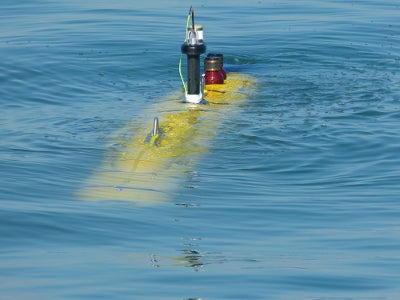
The US Defense Advanced Research Projects Agency (DARPA) has placed an order with the Science Applications International Corporation (SAIC) to provide deep ocean acoustic detection for transformational reliable acoustic path systems (TRAPS).
Under the single-award, fixed-fee, phase three contract, SAIC will provide a number of prototype nodes to test a scalable distributed system for identifying quiet submarines.
The company intends to supply a capability to use configurable technology system to address DARPA’s anti-submarine warfare surveillance needs over large, operationally relevant deep ocean areas.
The fixed passive sonar node, TRAPS have been designed to achieve large-area coverage by exploiting the advantages of operating from the seafloor.
SAIC senior vice-president and group general manager, John Fratamico, said: "We’re excited to continue to work with DARPA on this programme, maintaining our commitment and focus on offering innovative solutions that will lead to a final sea test demonstration employing multiple long endurance nodes modified and tested for improved power efficiency, information assurance, enhanced signal processing and manufacturability."
Under a previous contract, SAIC had designed a TRAPS prototype for the deep sea operations programme phase 1B, a part of the DARPA’s distributed agile submarine hunting (DASH) programme, and continued further analysis of available navy datasets for underlying scientific approach validation.
In phase two, the company used TRAPS prototype’s primary sensor to collect deep ocean acoustic data.
The phase three contract has a fourteen-month base period of performance and one six-month option, which, if exercised, would bring the total value of the order to approximately $10m.
Image: a SHARK UUV, developed a part of DARPA’s DASH programme, undergoing deep-sea testing. Photo: courtesy of Bluefin Robotics.





